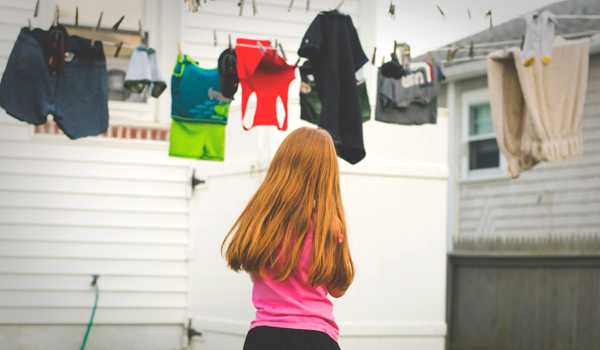
Almost everybody, at one point or another on their journey to become minimalist, ask themselves a difficult question: What should I do with all the excess possessions I am removing from my home and life?
Should I sell them or donate them?
While each person will ultimately make that decision for themselves, here is a general guideline I have followed and recommended:
If you don’t desperately need the money, you should always donate to a local charity whose mission you believe in. The only exceptions are valuable items or large items you are unable to transport yourself.
This is the solution that benefits the most amount of people: both you and the world around you.
Consider these three reasons why it is better to donate your unneeded possessions rather than sell them:
1. Trying to resell your old, unused items only adds time, effort, and stress to an already burdensome process.
Let’s face it, the process of becoming minimalist for most people is not a simple journey. If you’ve spent the first several decades of your life accumulating as much stuff as you can, getting rid of it is not going to be an overnight process. It’s going to take hard work and intentional focus.
Unfortunately, the process of reselling items you hope to remove from your home takes additional effort: snapping pictures, posting online, answering questions, bartering price, meeting buyers…
To make matters even worse, the amount of money we think we’re going to get for each item rarely materializes. Again, I think exceptions should be made for particularly expensive items, but for the most part, the effort is rarely worth the financial return.
2. Donating your unused possessions provides benefit to others.
Our excess can become a blessing to other people. The items in our closets, our drawers, our basement, or even in the back of our cupboard—almost anything that is still usable—can be used by somebody else. Even if you have no need for an item anymore, almost always somebody in your immediate community can be using it.
I am more convinced than ever that most people want to be generous. If you were to ask a roomful of people, “How many of you want to be known as generous?” 99.9% of hands go up. It’s a pretty small percentage of people who don’t want to be generous. This is something we all want to be true of us.
The problem is, for many people, they just can’t seem to find the margin to become generous. But at the same time, our homes are filled with things we don’t need, items we’ve collected, possessions we’ve accumulated that are unneeded by us. Those items can become the very margin we need to become more generous—and in very specific ways, they can bring help to people and causes in our community.
3. Generosity is not just the byproduct of minimalism, it is also the lifeblood of it.
As we minimize our possessions, we find margin for generosity—not just while we are removing possessions, but as our lives change in the future. Generosity is a byproduct of minimalism.
But I’ve discovered that generosity is not just the byproduct of minimalism, it can also become the very motivating factor that helps us declutter and minimize our possessions as well.
A woman shared her story with me several years ago. She began,
“Look, I’ve been trying to declutter for several months and I’ve actually done a pretty good job of it. I’ve been through many of the rooms in my home. But my closet and my wardrobe, was always going to be the toughest space for me. I love clothes. I love fashion. I knew even before I started I was going to have a hard time getting rid of clothes.
She continued,
Until now, I have not tackled it in any way. However, just last week, everything changed. I was driving downtown, and I happened to drive by our city’s battered women’s shelter. I don’t think I had ever noticed it before. But on that day, I began thinking about the building. I thought about the women living inside, many of whom escaped in the middle of the night from an abusive relationship, with nothing but the clothes on their back and their children in their arms. I saw them leaving, maybe even running, until they found this safe space.
As I thought of the women in the shelter, my mind raced back to my closet—full of beautiful clothes that I hardly ever wear. It occurred to me how much dignity, and how much beauty, and how much honor those clothes could bestow upon those women.
And that thought changed everything for me! I went home, grabbed a bag, and couldn’t fill it fast enough. I found another bag and filled it immediately. The next day, I took several bags of my finest clothes to this women’s shelter, knowing that they needed them more than me. Not just physically, but emotionally as well. They needed them more than I did.
If you have recently discovered the joy of owning less and are beginning the process of becoming minimalist, might I make a suggestion: If you don’t desperately need the money, donate the possessions you are discarding. Find a local charity that you believe in, and donate there.
You will benefit yourself, you will find motivation in the act, and you will bring a positive change to the world around you. What could be better than that?
from Becoming Minimalist https://ift.tt/2uGU599
Aucun commentaire:
Enregistrer un commentaire